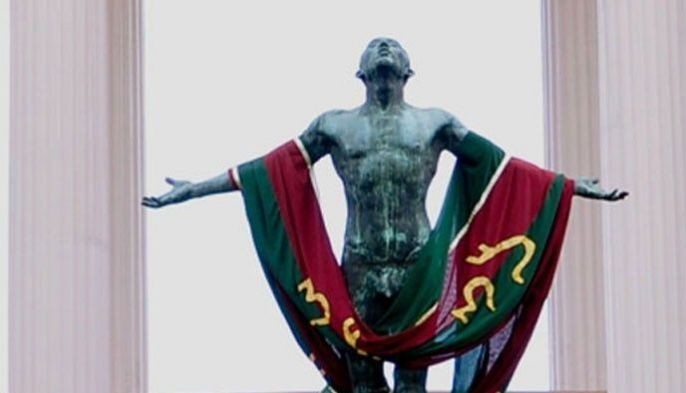PCGG suffers another setback in effort to recover ill-gotten wealth
March 10, 2006 | 12:00am
The Presidential Commission on Good Government (PCGG) suffered yet another setback in its effort to recover ill-gotten wealth after the Supreme Court affirmed the dismissal of charges against officials of the Development Bank of the Philippines (DBP) and the Bayview Hotel in connection with behest loans made in 1967 amounting to over P29 million.
In a 15-page decision penned by Associate Justice Romeo Callejo Sr., the SC denied the petition for review on certiorari filed by the Presidential Ad Hoc Fact-Finding Committee on Behest Loans chaired by the PCGG seeking to reverse the Sept. 30, 1997 order of then Ombudsman Aniano Desierto dismissing the graft case filed against DBP and Bayview Hotel officials.
Named as respondents in the case for violation of Section 3 of Republic Act 3019 or the anti-graft and corrupt practices act were Aniceto Evangelista, acting manager of the Real Estate Development; DBP governor Julio Macuja; Bayview Plaza Hotel Inc. (BPHI) incorporators and majority stockholder Mariano Zamora and his late wife, Esperanza Zamora; and Gregorio Licaros and Amos Fonacier, incorporator and president of the Universal Hotels and Tourism Development Corp. (UHTDC).
In its ruling affirming Desierto’s decision, the SC said it was constrained to deny the petition filed by the ad hoc committee as the case "has been rendered moot and academic."
The acts being complained about, according to Desierto, were governed by a law in force at the time of their commission, which was Republic Act 3019 prior to its amendment by Batas Pambansa Bilang 195 in March 1982.
RA 3019, he explained, provides that the offenses be charged within 10 years. Since the criminal complaint against the respondents was filed only in June 1997, the prescriptive period had already lapsed.
The SC did not give credence to the claims of the ad hoc committee that the prescriptive period should begin with the date that the crime was discovered.
Moreover, it junked the ad hoc committee’s petition to direct the Ombudsman to conduct the preliminary investigation.
"The principal relief sought by the petitioner has been rendered unnecessary and superfluous because the Ombudsman had, in fact, subsequently conducted the said preliminary investigation... Significantly, the issue of the existence of probable cause, or lack of it, is not the subject of the instant petition," the high court said.
The Presidential Ad Hoc Fact-Finding Committee on Behest Loans was created by former President Fidel Ramos on Oct. 8, 1992, through Administrative Order No. 13 with the PCGG acting as chairman.
It was tasked to inventory all behest loans, identify the leaders and borrowers, including the principal officers and stockholders of the borrowing firms, and the persons responsible for granting the loans.
It was also instructed to identify the borrowers who were granted friendly waivers, as well as the government officials who granted these waivers and if possible determine the courses of action that the government should take to recover such loans.
Several loan accounts were referred to the ad hoc committee for investigation, including the loan transaction between Bayview Plaza Hotel Inc. and the DBP.
After conducting an examination and study of all the documents relative to the loan transaction, the committee determined that it bore the characteristics of a behest loan since the loan had insufficient collateral and the corporation was undercapitalized.
The ad hoc committee’s investigation showed that the Bayview property was acquired by the DBP through foreclosure for P16.160 million. However, its appraised value was placed at P25.8 million as of May 1971 or a deficiency claim of P9.6 million.
However, under its Board Resolution No. 842 dated March 29, 1978, the DBP dropped the bank’s deficiency claim against the heirs of the late Esperanza Zamora, whose family members were majority stockholders of Bayview.
The ad hoc committee also found that the Bayview Hotel was leased, with option to purchase, to the UHTDC for 25 years since Oct. 6, 1974. As of April 1, 1986, the total obligation of UHTDC was P52.5 million.
On June 11, 1997, based on the sworn statement of PCGG consultant Orlando Salvador, the ad hoc committee filed before the Office of the Ombudsman graft charges against Evangelista, Macuja, Licaros, Fonacier, Mariano and Esperanza Zamora.
Evangelista and Macuja approved the loan and accommodations granted to Bayview. — Jose Rodel Clapano
In a 15-page decision penned by Associate Justice Romeo Callejo Sr., the SC denied the petition for review on certiorari filed by the Presidential Ad Hoc Fact-Finding Committee on Behest Loans chaired by the PCGG seeking to reverse the Sept. 30, 1997 order of then Ombudsman Aniano Desierto dismissing the graft case filed against DBP and Bayview Hotel officials.
Named as respondents in the case for violation of Section 3 of Republic Act 3019 or the anti-graft and corrupt practices act were Aniceto Evangelista, acting manager of the Real Estate Development; DBP governor Julio Macuja; Bayview Plaza Hotel Inc. (BPHI) incorporators and majority stockholder Mariano Zamora and his late wife, Esperanza Zamora; and Gregorio Licaros and Amos Fonacier, incorporator and president of the Universal Hotels and Tourism Development Corp. (UHTDC).
In its ruling affirming Desierto’s decision, the SC said it was constrained to deny the petition filed by the ad hoc committee as the case "has been rendered moot and academic."
The acts being complained about, according to Desierto, were governed by a law in force at the time of their commission, which was Republic Act 3019 prior to its amendment by Batas Pambansa Bilang 195 in March 1982.
RA 3019, he explained, provides that the offenses be charged within 10 years. Since the criminal complaint against the respondents was filed only in June 1997, the prescriptive period had already lapsed.
The SC did not give credence to the claims of the ad hoc committee that the prescriptive period should begin with the date that the crime was discovered.
Moreover, it junked the ad hoc committee’s petition to direct the Ombudsman to conduct the preliminary investigation.
"The principal relief sought by the petitioner has been rendered unnecessary and superfluous because the Ombudsman had, in fact, subsequently conducted the said preliminary investigation... Significantly, the issue of the existence of probable cause, or lack of it, is not the subject of the instant petition," the high court said.
It was tasked to inventory all behest loans, identify the leaders and borrowers, including the principal officers and stockholders of the borrowing firms, and the persons responsible for granting the loans.
It was also instructed to identify the borrowers who were granted friendly waivers, as well as the government officials who granted these waivers and if possible determine the courses of action that the government should take to recover such loans.
Several loan accounts were referred to the ad hoc committee for investigation, including the loan transaction between Bayview Plaza Hotel Inc. and the DBP.
After conducting an examination and study of all the documents relative to the loan transaction, the committee determined that it bore the characteristics of a behest loan since the loan had insufficient collateral and the corporation was undercapitalized.
The ad hoc committee’s investigation showed that the Bayview property was acquired by the DBP through foreclosure for P16.160 million. However, its appraised value was placed at P25.8 million as of May 1971 or a deficiency claim of P9.6 million.
However, under its Board Resolution No. 842 dated March 29, 1978, the DBP dropped the bank’s deficiency claim against the heirs of the late Esperanza Zamora, whose family members were majority stockholders of Bayview.
The ad hoc committee also found that the Bayview Hotel was leased, with option to purchase, to the UHTDC for 25 years since Oct. 6, 1974. As of April 1, 1986, the total obligation of UHTDC was P52.5 million.
On June 11, 1997, based on the sworn statement of PCGG consultant Orlando Salvador, the ad hoc committee filed before the Office of the Ombudsman graft charges against Evangelista, Macuja, Licaros, Fonacier, Mariano and Esperanza Zamora.
Evangelista and Macuja approved the loan and accommodations granted to Bayview. — Jose Rodel Clapano
BrandSpace Articles
<
>
- Latest
- Trending
Trending
Latest
Trending
Latest
Recommended
January 10, 2025 - 12:00am






























